NeuroTechX Student Clubs Competition 2019
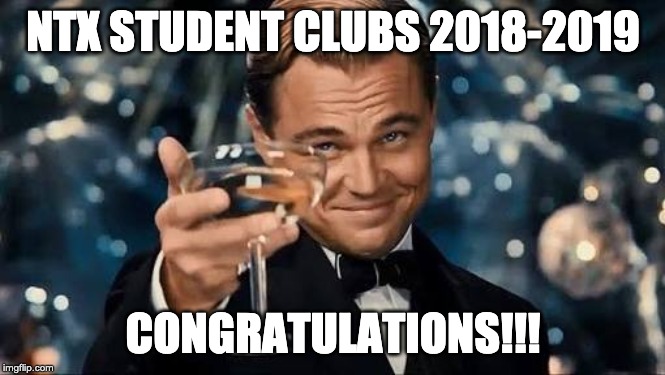
Winners
- Open Challenge 1st place: McGill NeuroTech, McGill University
- Open Challenge 2nd place: NeuroTechUofT, University of Toronto
- Fixed Challenge 1st place: PolyCortex, Polytechnique Montreal
- Facebook Like Contest (PuzzleBox Orbit): Merlin, Queen's University
- Participation Prize #1 (MeloMind): NeurotechUofT, University of Toronto
- Participation Prize #2 (Emotiv EPOC+): SynapsETS, ETS
Links to their amazing projects
- McGill NeuroTech (Milo)
- NeuroTechUfoT (Neurostack + MindType)
- PolyCortex (PolyCortex Acquisition 2019)
>>>All projects: http://bit.ly/NTXSC19
Judges
Thanks to our awesome jury for taking their time to evaluate the projects and give valuable feedback to the students!
Judges - Open Challenge
 | 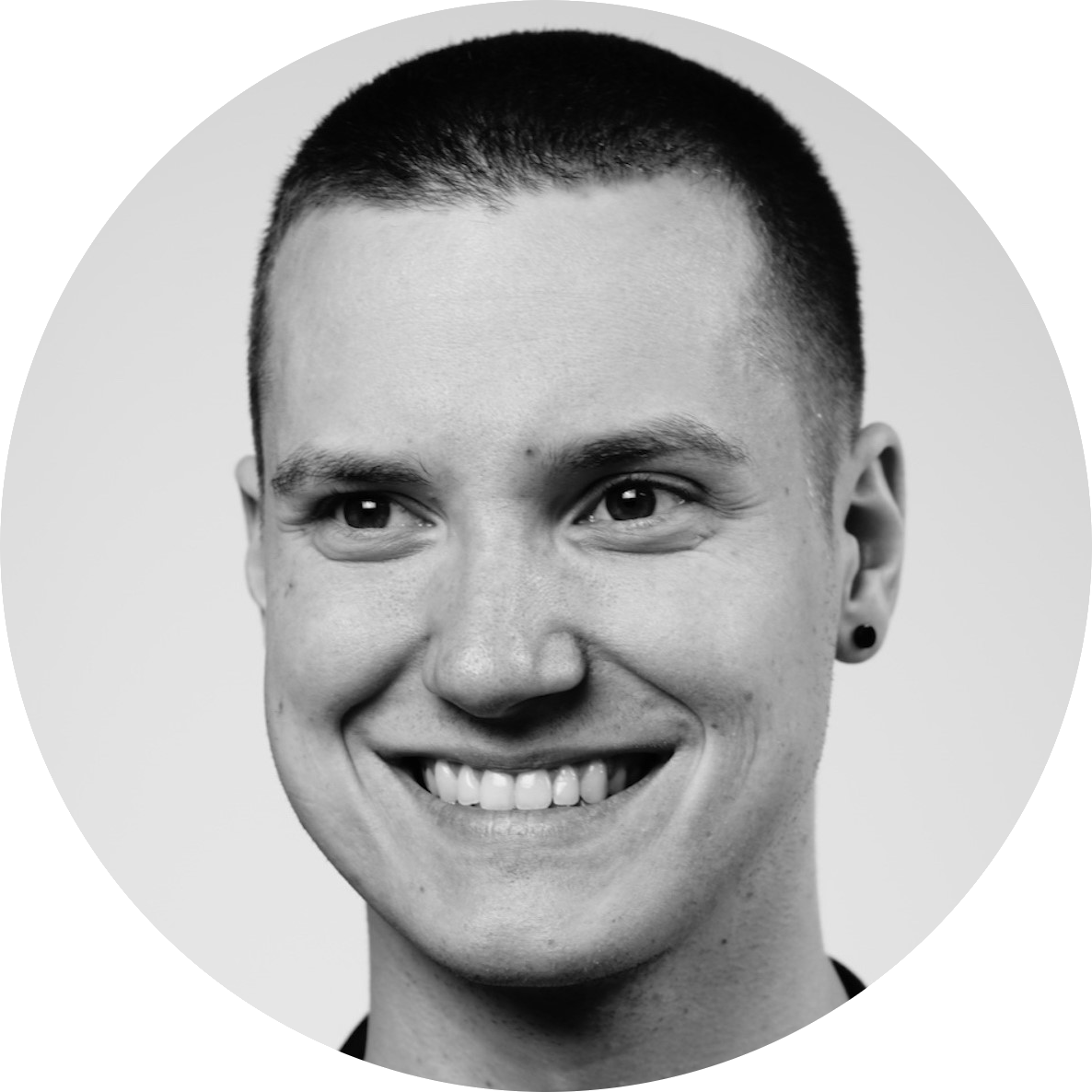 | 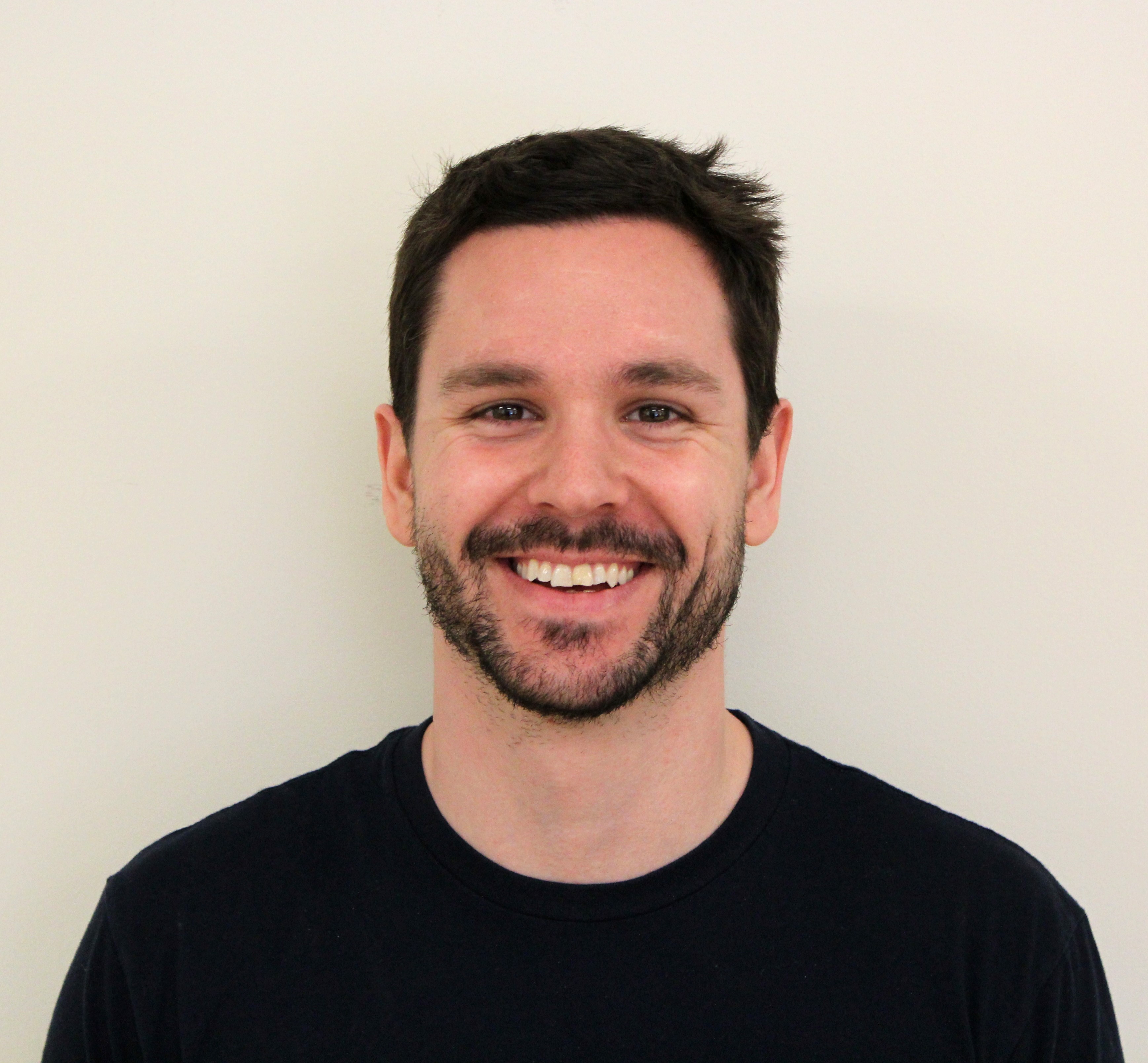 |
| Cris Micheli, CTO as Cognixion | Jacob Flood, CEO at Mindset | Yannick Roy, Cofounder NeuroTechX |
- Fixed Challenge
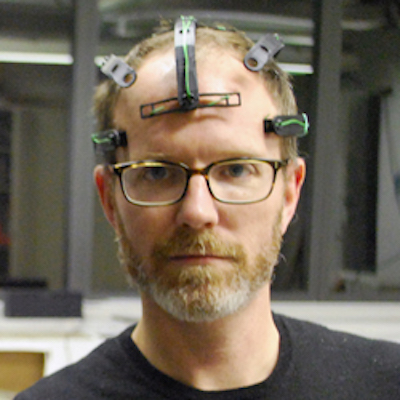 | 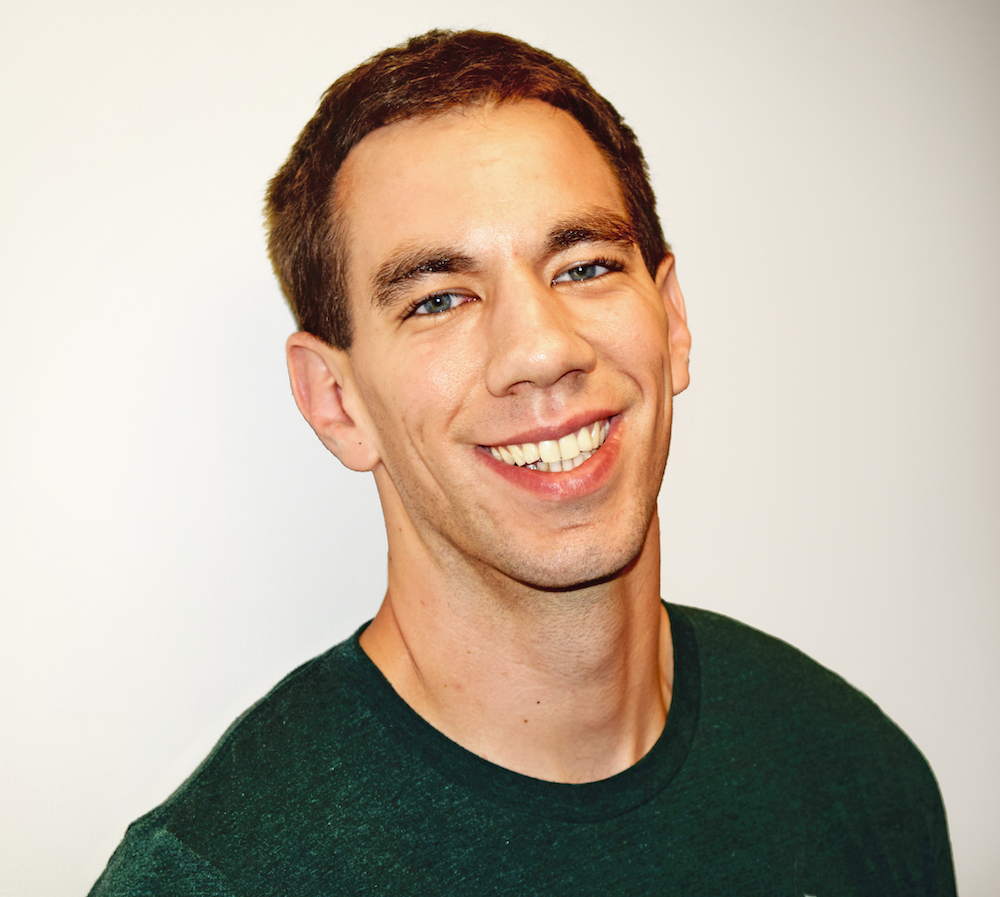 |  |
| Joel Murphy, Cofounder of OpenBCI | Jake Stauch, CEO at NeuroPlus | Yannick Roy, Cofounder of NeuroTechX |
Thanks also to our sponsors and partners without whom this initiative wouldn't be possible.
And last but not least, congratulations to all participating student clubs!
Results & Prizes
Results - Open Challenge
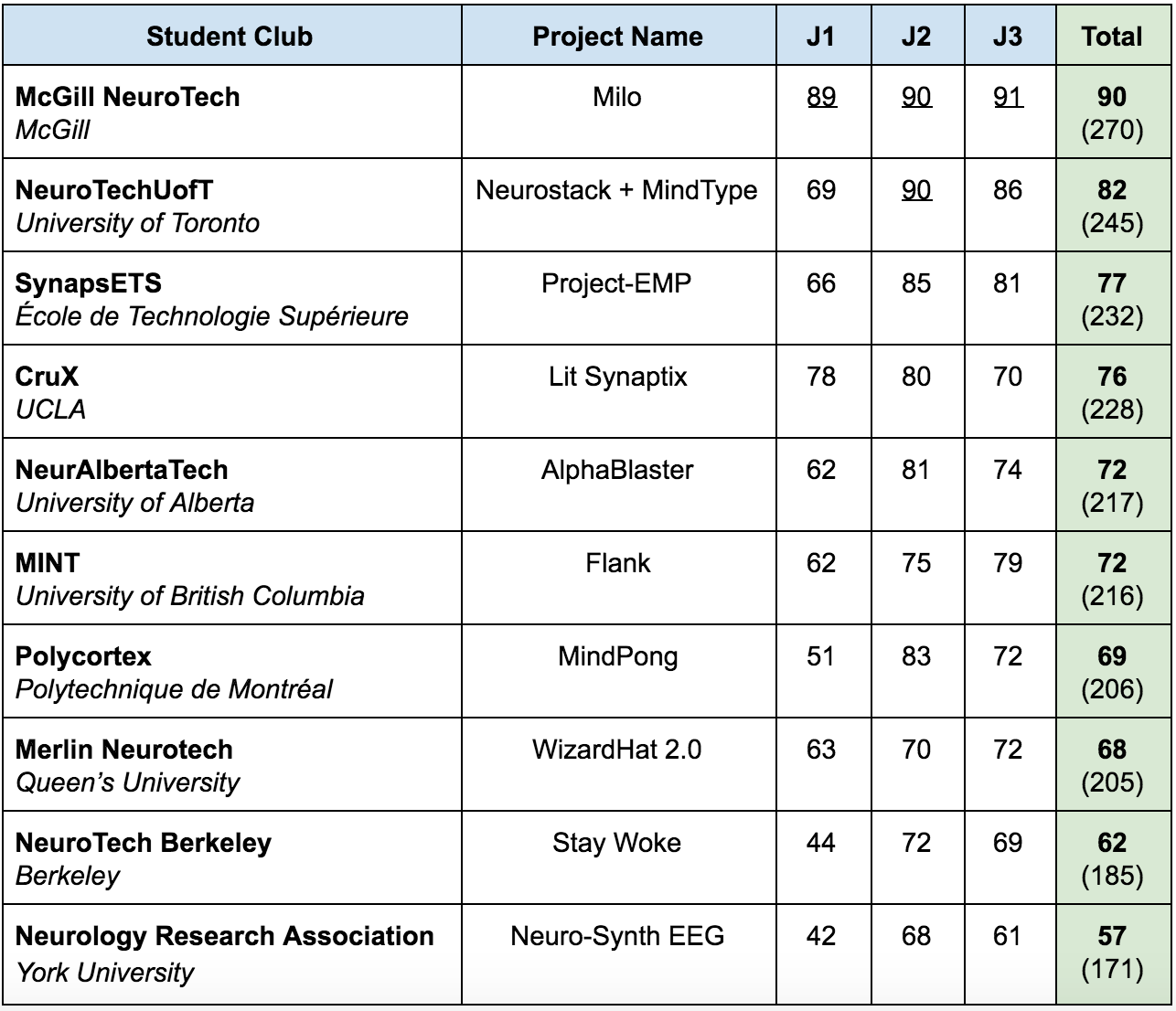
Results - Fixed Challenge

All Prizes
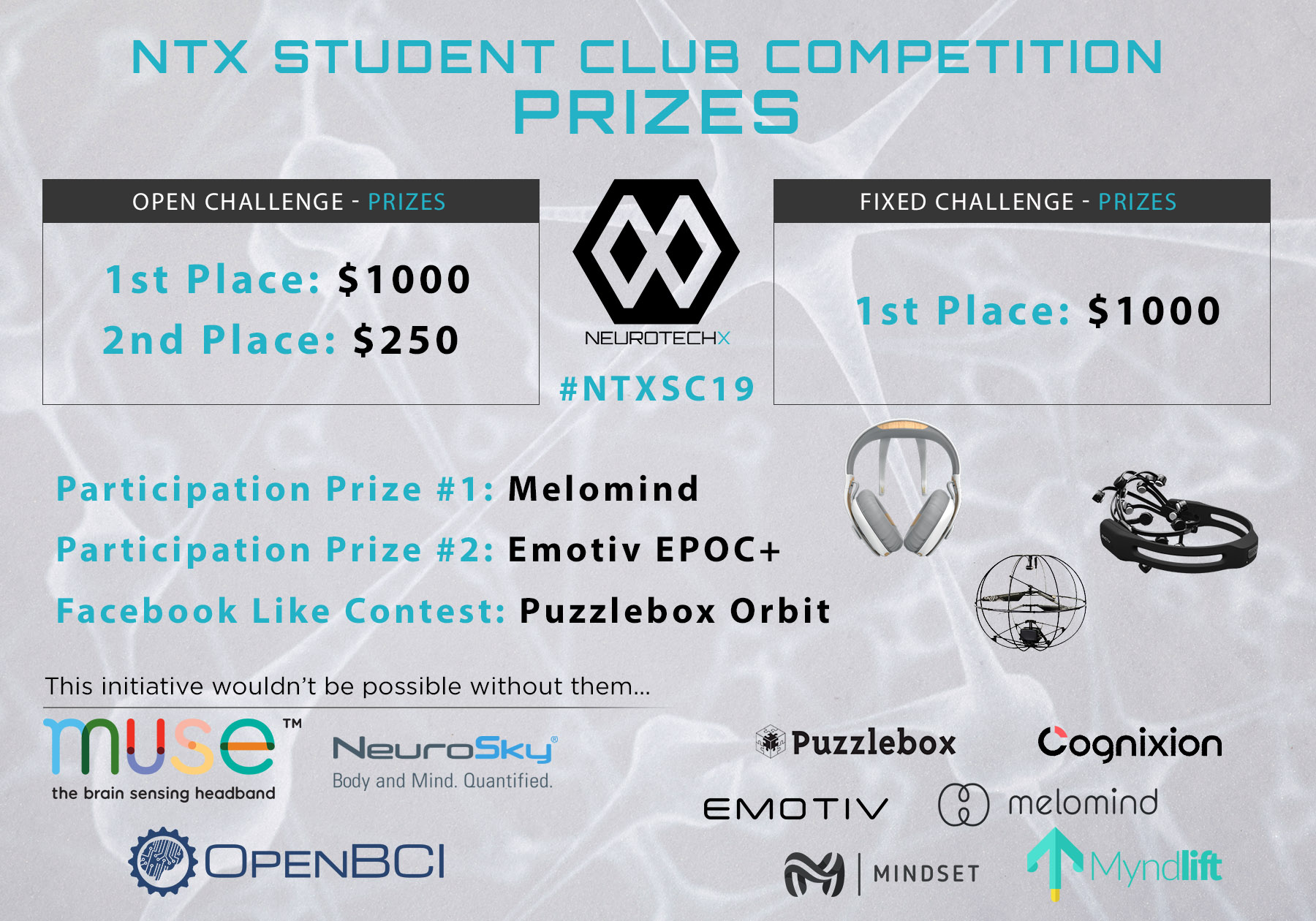
Participation rules
- The team must be composed of at least three (3) undergraduate students from the same university (or campus). Make sure you can use your university name.
- The team must have a web page with a team name & administrators (point of contact).
The NeuroTechX SC Online Competition has two components: a fixed challenge and an open challenge.
All team must submit a 10-min video including a presentation and a demonstration of the project, for both challenges. All team must also provide a public GitHub repository, including the project components and a comprehensive description with all the steps to reproduce it. The deadline for submitting a project to any of the two challenges is Sunday, April 14th, 2019 at 23:59 (EST). All projects must be reproducible and open-source.
Open challenge
The open challenge aims at increasing the overall creativity of neurotech students. All projects related to neurotechnologies are allowed. Specific rules are listed hereafter:
- The project has to be related to neurotechnology, but there is no restriction on the type of project, it could be an art project, a game, a medical solution, etc.
Here is a non-exhaustive list of neuro-tech-related fields:- Your body is the input: EEG, ECG, EMG, EOG, GSR, temperature, blood pressure, etc.
- Cognitive neuroscience
- Computational neuroscience
- Neuroimaging
- etc.
- A prototype is mandatory.
- A proposal of the project should be submitted and approved at least 2 month prior.
- While re-doing existing projects is valuable, something ‘novel’ is expected. #NeuroInnovation
Replicating existing technologies is allowed and will not be undervalued.
A EEG dataset is suggested for software and EEG-oriented project but not mandatory.
Fixed challenge
The fixed challenge aims at increasing the general knowledge of neurotech students by challenging them to build a fully home-made acquisition pipeline for EEG signals, including the following five stages (stages 2 and 3 can be switched depending on stage 1), with variable constraints from year to year.
Each stage has specific objectives (italic items is required):
- Acquisition
- Develop an home-made acquisition board, with at least 1 channel
- Total cost of board must not exceed 1000 USD (excluding R&D)
- Signal processing
- Focus on signal of interest (EEG) and remove artifacts and noise
- Data transmission
- Data must be acquired with a speed of at least 200 Hz
- Transmitted to a distant computer wirelessly or not
- Real-time visualization
- Real-time visualization of signal in the time and frequency domains, for each acquisition channel
- An “alpha mode” must enable the easy characterization of the alpha band power, following a open/close paradigm
- Data recording
- Data must be stored on a computer with appropriate data format for latter use
2019 constraints
- Acquisition of EEG signal is recommended (pipeline could be presented with EMG or ECG).
- Acquisition chips such as ADS1299 are accepted.
- PCB are highly recommended (not mandatory).
- Open-source libraries for data transmission and visualization are allowed, full package such as OpenVibe are not allowed.